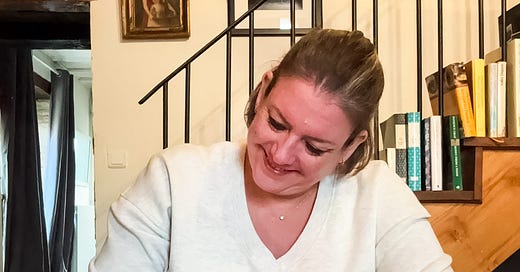First, thank you to everyone who showed up to the happy hour Mark Scott and I had in Washington, DC, on Tuesday. I am blown away at the support we got for sponsorships and everyone who showed up. I appreciate it and hope we can do more of these in the future!
This week, I’ve been reliving my time at Facebook—not just because I finished reading my own book draft, but because a former colleague dropped a surprise memoir. It’s been described as 'explosive.' And while I’m still reading, I already know that no two people walk away from the same experience with the same story.
I’m only partially through the book. But I’ve gotten bits and pieces about what is in it from reporters and previews that NBC, the Washington Post, and the New York Times put out.
Once I’ve finished the book, I want to write a proper review. However, I’ve struggled with what to say or not say before I do that. I keep circling back to how we all choose how we want to tell our stories to the world.
When I left Facebook, I thought long and hard about how I wanted to show up as a former Facebooker. I knew I could express my intentions, but it would be my actions that people would ultimately be looking towards - and that would take some time to build up.
When I left the company four years ago, I didn't know that Frances Haugen would be telling her story six months later—a few weeks after I started this newsletter. Since then, numerous people have told their stories, and Sarah Wynn Williams, my former colleague who wrote the surprise memoir, is the most recent.
What continues to strike me is that we each live inside our version of history. The same moment, viewed from different vantage points, can look entirely different. When the time comes to tell our stories, we make choices—not just about what to include, what context we choose to include - or not include - but also about what those events meant to us.
Sarah’s book, Careless People, raises serious questions about Facebook’s role in the world and makes allegations against leaders like Joel Kaplan and Sheryl Sandberg. I can’t speak to Sarah’s specific experiences, only my own. In my experience, Joel was one of the best bosses I ever had. He supported me from the day he joined and greatly influenced my growth at Facebook. Our relationship got more complicated when I moved teams, COVID hit, and I left, but that doesn’t outweigh the good.
It’s strange to be in a position where a former colleague’s story doesn’t match your own—where weighing in can feel like picking sides. I’ve been away from Facebook for four years, yet I still feel pulled into these narratives. Many in my position would—understandably—choose to stay quiet. But I didn’t start this newsletter to keep silent.
But I want to be fair and only discuss my own experiences. That’s all anyone can do. We can also remember that our story is but a drop in the ocean of various experiences that everyone has.
Throughout all of this, I’m thinking and learning a lot about my book and how I want to present it to the world. Mine is at least a year out, and I’ve chosen a hybrid publisher rather than a traditional one because I want to control more of the content. I have never wanted to write an expose or tell-all book.
I could have written an exposé. But from day one, I’ve been more interested in helping people think about their roles in history as I grapple with mine. Whether we realize it or not, we’re all shaping the next chapter.
I don’t agree with much in Sarah’s book so far—just like I haven’t always agreed with other books about Facebook. But I know that our stories will sit side by side in history. And maybe, when someone looks back years from now, they’ll see something none of us could see at the moment.
This is why I believe in telling my story with integrity, nuance, and honesty. I will soon share more about Sarah’s book and my own story, told in full.




